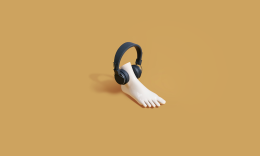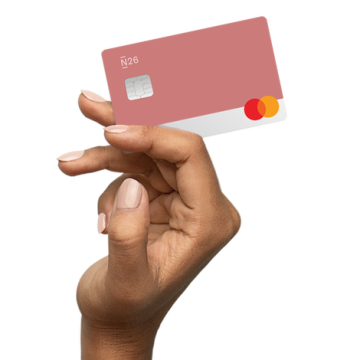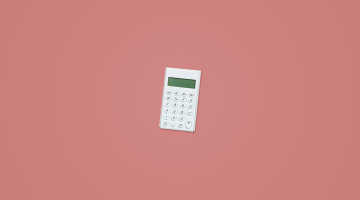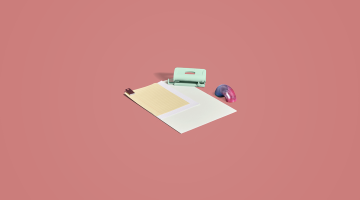
Your ultimate guide on what to take to uni
Check out this comprehensive checklist of what to take to uni—including paperwork, electronics, stationery, clothes, and household supplies.
7 min read
- Make sure you have all the important documents, like your passport, university acceptance letter, and any financial aid paperwork.
- Don’t forget your study equipment: laptop, smartphone, and chargers..
- Bring analog study materials like notebooks, pens, folders, and whatever else you need to keep organized.
Preparing to go to university is stressful enough without having to deliberate about what to take with you. And with only a limited amount of space, you likely can’t bring everything you own. Besides, half the fun of going to college is getting a fresh start! That said, there are some essentials that should be on every student’s list. From the lecture theater to your dorm room, the admin office and beyond—as a new student, you’ll need easy access to things like important paperwork, electronics, clothing, kitchen utensils, bedroom items, and study essentials.Thankfully, help is here. We’ve put together a definitive checklist on what to take to university—the must-haves, the nice-to-haves, and a few must-avoids. Read on, get your bags ready, and start packing. Our moving calculator can also help you to better calculate your moving costs.
Student life—an endless compromise between practicality and fun
Paperwork—identification is everything
Must-haves (8 items):
- Passport
- Driver’s license and/or personal ID card (if you have one)
- University correspondence: acceptance letter, prospectus, textbook/reading list, accommodation information, campus map
- Correspondence relating to your scholarship, bursary, or grant
- Bank account details and any recent correspondence from your bank
- Student loan documents
- A copy of any medical prescriptions you may have
- Work/study visas (if applicable)
Nice-to-haves (4 items):
- Student discount cards (travel, sports, shopping)
- Additional biometric passport photos
- A list of mobile phone numbers in case you lose your phone
- Insurance documents (consider taking out insurance before you arrive)
Electronics—keep them byte-size
Must-haves (5 items):
- Laptop and charger
- Smartphone and charger
- Headphones (for quiet, focused study periods)
- Extension cable (you won’t know how many plug sockets you’ll have in your room until you get there)
- USB stick (in case you can’t access your files in the cloud once you’re on campus)
Nice-to-haves (5 items):
- Wireless mouse, screen, and keyboard (they’ll do wonders for your posture)
- Power bank for your smartphone while you’re on the go
- Ethernet cable
- AAA and AA batteries
Study items—don’t be that person in class asking to borrow a pen
Must-haves (4 items):
- Notebooks (A4, A5)
- Personal organizer (it’s better not to attempt to keep all deadlines in your head!)
- Pens, pencils, and highlighters (different colors are a good idea)
- Lever-arch files to store your work and keep it organized
Nice-to-haves (5 items):
- Post-it notes
- Stapler and hole punch
- Eraser
- Ruler
- Plastic wallets (added protection for your notes)
Domestic items—bedroom, bathroom, and kitchen
Must-haves (14 items):
- Bed linen: bedsheets, pillows and cases, a duvet with cover, mattress protector
- Backpack, weekend bag
- Clothes horse or washing line
- Coat hangers
- Bath towels, dressing gown, and flip flops (if using a communal shower)
- Toothbrush, toothpaste, shower gel, soap, shampoo
- Ear plugs, nail cutters, razors, hairbrush/comb/straighteners
- Hair dryer
- A first-aid kit containing: Bandaids, painkillers, bandages, safety pins, tweezers, alcohol-free cleansing wipes, antiseptic cream, insect bite spray, thermometer, antihistamine cream
- Toilet roll (especially if using a communal bathroom)
- Medications and personal hygiene products
- Contact lenses and solution, make-up remover
- Water bottle
Nice-to-haves (14 items)
- Speakers
- A plant or two (studies show the magic number for plants is actually 10, but your room may be too small for this)
- A small fan for summer
- Flashlight
- Padlock
- Lighter
- Drawing pins or sticky tack
- Desk lamp
- Cling film/tin foil, Ziploc bags
- Tupperware
- Knife, fork, and spoon
- Scissors
- Thermos
Clothing—for lectures, nights out, and everything in between
Must-haves (7 items):
- Underwear and socks
- Casual clothing (T-shirts, sweatshirts, jogging pants, jeans, etc.)
- Winter coat, gloves, and hats
- Smart outfit for formal occasions
- Sportswear/swimwear
- Trainers, boots, and shoes
- Pyjamas
Nice-to-haves (4 items):
- Slippers
- Fancy dress items
- Raincoat
- Watch
The must-avoids—what not to take to uni
Must-avoids (7 items):
- A printer: one of the small mercies of going to university is that there are libraries, computer hubs, and copy shops everywhere, so there’s no need to spend hours trying to sync your printer with your dorm’s wireless network.
- Your car: first, you’ll either have to pay for a parking space or find one on the street every time you return from lectures. Second, you’ll have to pay for gas. Third, you’ll be a taxi service to everybody on campus. While at uni, public transport is your friend!
- Multiple coats and/or pairs of shoes: coats are bulky and take up a lot of space in your luggage, so think about whether you truly need a different one for every day of the week. The same applies to shoes. That pair of Louboutins or Yeezy 700s that you keep in a box at the back of the cupboard? Leave them behind.
- Small appliances: that kettle, toaster, or microwave you’re trying to stuff into a box? Forget it. If you’re in a dorm, these appliances will be available in the kitchen or communal area. Renting a room in a house? It’s highly likely the landlord will provide them.
- Old schoolwork: look forward, not back
- Anything bulky
- Books: Go to the library! Plus, there’ll be plenty of book fairs for you to stock up on new ones
Pay in seconds, not days
With instant transfers your money will arrive immediately to any bank account in the SEPA area.
Descubrir la tarjeta Mastercard
Your money at N26
Find similar stories
BY N26Love your bank
Advertising message for promotional purposes. Please see the contractual documentation for more information in the Legal Documents Section.
Related Post
These might also interest youSTUDENTSThe 10 best places to study abroad — where to go to satisfy your wanderlustCulture, courses, people and places: studying abroad comes with a host of benefits to help you grow as a person. Check out our online guide on 10 fantastic places to study around the world.
10 min read
STUDENTS3 ways for financing your college educationThis guide takes a closer look at the main options students in Europe have to pay for college and the eligibility requirements for each one. It includes links to databases for scholarships and grants.
6 min read
STUDENTSWhat is the cost of attendance at university in the EU?It’s important to consider the cost of attendance when studying at university. From tuition fees to living costs, here’s everything you need to know.
6 min read



